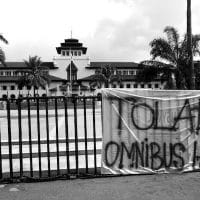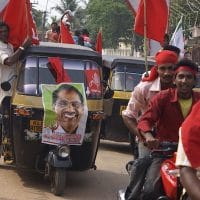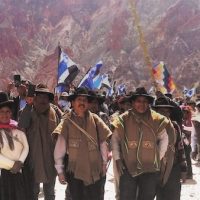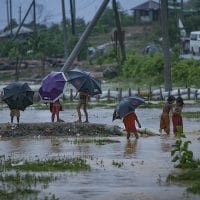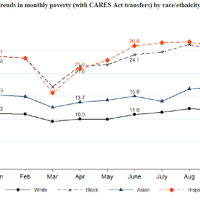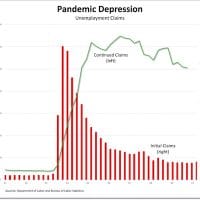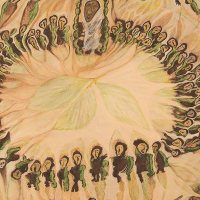-
Capitalism, slavery, and economic white supremacy
What is at stake when we talk about the economics of North American slavery? Over the last 75+ years it has been whether capitalism superseded slavery or whether capitalism and slavery were co-constituted, capitalism to some extent relying on slavery.
-
Media responds with apathy, disappointment as U.S.-backed coup Gov’t concedes defeat in Bolivia
Across the spectrum, corporate media has endorsed last year’s rightwing takeover of Bolivia, refusing to label it as a coup. Coverage of Sunday’s historical elections hasn’t been much better.
-
Putting the ‘e’ in revolution
In 2020, it’s the unadorned ‘S’ word–‘socialism’–that could be impeding the move to a socially-just transformation to an economically-fairer and ecologically-sustainable world.
-
Neoliberal ‘Omnibus Law’ sparks rebellion in Indonesia
A major protest movement is underway in Indonesia against the neoliberal, authoritarian-populist regime of Joko Widodo and his collaborators in the House of Representatives. Frans Ari Prasetyo explains the so-called ‘Omnibus Law’ that sparked the protest, and reports on the clashes now unfolding in Bandung and many other cities.
-
One hundred years of Indian communism
The economic programme suggested for such a front included the right to strike, banning reductions of wages and dismissals of workers, an adequate minimum wage and 8-hour day, a 50 per cent reduction in rents and banning the seizure of peasant land against debt by imperialists, native princes, zamindars and money lenders.
-
Competing with Nature: COVID-19 as a capitalist virus
He’s turned it into a political propaganda unit to the point that it is unable to deal even with a major outbreak within our own borders. The U.S. is beginning to exhibit the features of a failed nation state.
-
MAS election victory in Bolivia generates wide repercussion
The victory in first round of the Movement towards Socialism (MAS) party in Bolivia, according to an exit poll, has generated several reactions on Monday after surpassing what was expected in the polls.
-
Hours before Bolivia goes the polls, early results system suspended, military mobilization in La Paz
The first elections since the coup d’état will be held on October 18 amid a tense social and political climate. This includes a military mobilization in La Paz the night before the polls and the suspension of the DIREPRE early results system.
-
Engagement for environment
ALL conscious citizens know the state of the Bangladesh environment. Bangladesh’s courts of law regularly rule in favour of the environment.
-
COVID-19 economic crisis snapshot
Workers in the United States are in the midst of a punishing COVID-19 economic crisis.
-
Chavismo and the Left: A conversation with Reinaldo Iturriza (Part II)
A Chavista author and former minister talks about the Bolivarian Revolution’s innovations and internal tensions.
-
The end of engagement
In November of 1967, just months before announcing his entrance into the 1968 presidential race, Richard Nixon outlined in Foreign Affairs what would become a north star for Washington’s orientation towards China for the next half-century.
-
Contagion in art
As the world continues to grapple with COVID-19, Maeve McGrath takes a look at how artists have depicted plagues and epidemics in times gone past.
-
How online learning companies are using the Pandemic to take over classroom teaching
Experts warn the rush to outsource teaching to private companies is bad for students, teachers, and taxpayers.
-
Chart of the day
U.S. billionaires have recouped all of their wealth—and more—during the Pandemic Depression. Meanwhile, since May, the number of poor Americans has grown by about 8 million.
-
Normal is gone—where do we go from here?
Your parents at the dinner table laugh and say revolution will not happen in two months. You respond saying perhaps they are right—revolution may not occur in the next two months. But, as Che Guevara said, “the revolution is not an apple that falls when it is ripe. You have to make it fall.”
-
Bullets are not the seeds of life
Bullets, as Mahjoub sang in prison, are not the seeds of life. The answers to our misery are so obvious, but they would cost the minority who control power, privilege, and property; they have a lot to lose, which is why they hold on so desperately.
-
No, China didn’t ‘stall’ critical Covid information at outbreak’s start
Now that some time has passed since the beginning of the outbreak, it’s worth revisiting the less-conspiratorial corporate media narrative that the Chinese government maliciously or incompetently delayed the release of critical information early on, thereby causing many unnecessary deaths.
-
American Science: Triumph or Tragedy?
A historian of science himself, Conner is fully cognizant of the accomplishments of American science and technology. In an earlier book, A People’s History of Science: Miners, Midwives and “Low Mechanicks” (2005), he demonstrated the contributions of ordinary citizens to science, but he also warned of the corruptive potential of corporate money and military power.
-
Mainstream economics then: classical political economy
Marxian economists have been quite critical of contemporary mainstream economics. As we saw in Chapter 1, and will continue to explore in the remainder of this book, Marxian economists have challenged the general approach as well as all of the major conclusions of both neoclassical and Keynesian economics.




